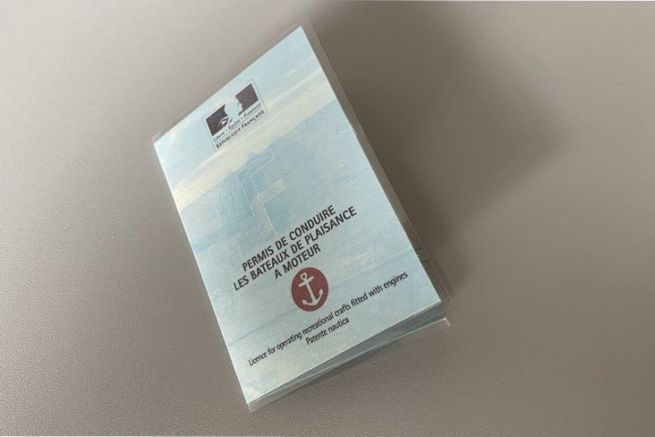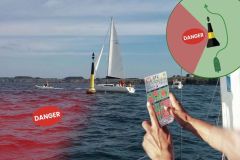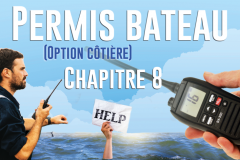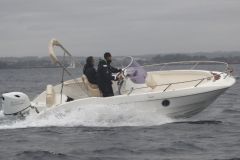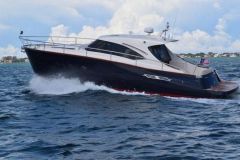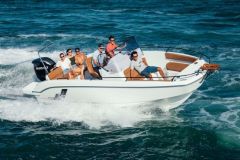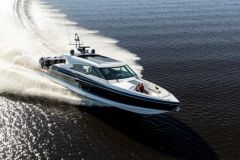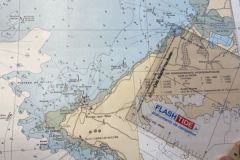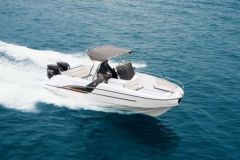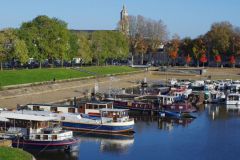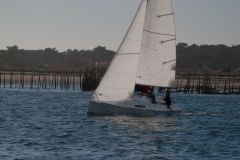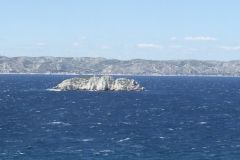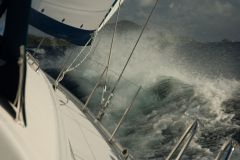To navigate in France (or abroad with a French flag), you must have a license as soon as the engine power exceeds 6 hp (4.5 kW). However, there is no maximum power. With a boat license, you can drive a racing car with 4 x 350 hp for example!
This license is not required for sailboats whose engine is considered as an auxiliary motorization, the main motorization being the sails.
The coastal license is often sufficient
A coastal license forbids you to sail more than 6 miles from a shelter. A shelter is a place where you can put your boat and crew in safety: a port, an estuary, a cove where you can disembark..
In concrete terms, this distance of 6 miles from a shelter makes it possible to envisage cruising between 2 points 12 miles apart (2 x 6 miles). At the halfway point, you will still be 6 miles from the shelter.
Thus, one can practically go around France with a coastal license. Some areas remain inaccessible such as the Ile d'Yeu off the Vendée, the large beaches of the Landes, the Gironde and the Basque Country or the passage in front of the mouth of the Rhone (Port Camargue, Les Sainte-Marie de la Mer, Fos-Sur-Mer).
This coastal license is obtained with a theoretical test of 30 questions (knowledge of the regulations and signs) as well as a practical test (brief learning of how to maneuver a motorboat).
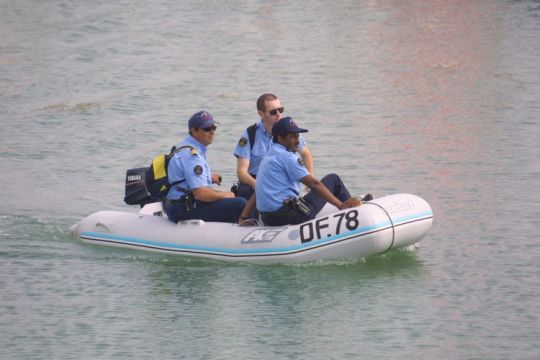
The offshore license to gain the open sea
This permit is required when you want to access the open sea. It will be useful if you want to reach Corsica or the Balearic Islands from the mainland, for example. It is an extension of the coastal license and can only be obtained once the first one is validated.
This permit, which is only theoretical, allows you to validate your knowledge of how to plot a course on a map (for example, calculating a course according to the drift or determining your position with 3 bearings), but also to know how to calculate the tide (rule of twelfths).
Inland water bodies
On closed bodies of water and lakes, the coastal permit is necessary. This is not the case for river navigation (river, canals) which requires a specific license: the river license. Except in the case of river rental boats, which are exempt from this license to allow rental to all amateurs without any restriction (except for the one to follow a quick handling of the boat with a professional at the beginning of the rental).
And abroad?
If you are sailing abroad on a boat flying a foreign flag (a rental boat for example), you should check with the authorities of the country concerned. Generally, the presentation of a French license is sufficient to rent a boat for example.
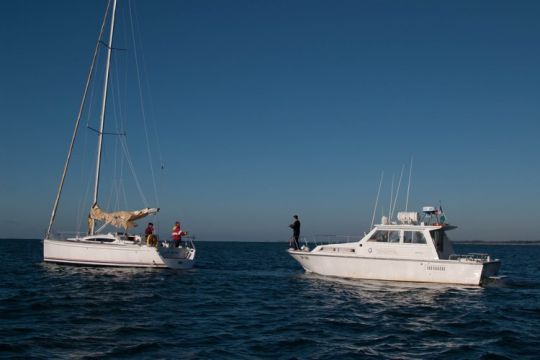
Control, what are the risks?
At sea, or back in port, you can be checked by the Maritime Affairs, the Gendarmerie Maritime or the Customs. It can be a simple routine control (verification of mandatory safety equipment for example) or following an infraction such as speeding in the 300 m band for example, or failure to respect a channel sign.
Be aware that if you do not have a license you risk a fine of 1500 euros, conversely if you have it, but have endangered the safety of people, the authorities can withdraw temporarily or permanently this license ... Sailing under the influence of alcohol or drugs is also punishable by fine.

 /
/ 